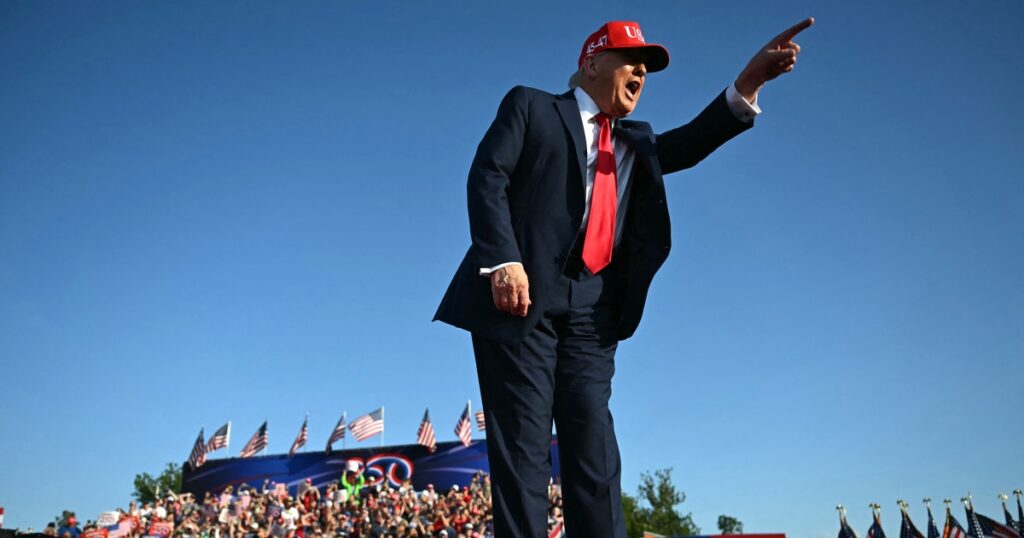Trump’s Controversial Remarks at Iowa Rally Draw Widespread Criticism
President Donald Trump sparked controversy during a speech in Des Moines, Iowa, on Thursday by using an antisemitic term to reference exploitative bankers, simultaneously celebrating the recent bipartisan passage of his expansive domestic policy legislation.
At an event intended to commemorate the upcoming 250th anniversary of the Declaration of Independence, the atmosphere quickly shifted as Trump launched into a partisan tirade, expressing disdain for Democrats who opposed his so-called “big, beautiful bill.”
While outlining the bill’s features, Trump highlighted a provision designed to assist family farmers by allowing decreased estate tax burdens when bequeathing land to their heirs. He said, “No death tax, no estate tax, no need to turn to banks, and in some cases, to fine bankers, and in others, to shylocks and dishonest individuals. They have ruined many families, but we have done the opposite.”
The term “shylock” originates from the Jewish character in Shakespeare’s “The Merchant of Venice.” The Anti-Defamation League (ADL) describes the character as a “conniving and cruel” moneylender, often reinforcing negative stereotypes about Jewish people’s relationship with money.
In response to the terminology, Amy Spitalnick, CEO of the Jewish Council for Public Affairs, stated on social media that the term exemplifies “some of the most basic antisemitic stereotypes.” She added, “This is not an isolated incident. It follows a pattern in which Trump has normalized antisemitic tropes and conspiracy theories — an alarming situation.”
When approached by reporters after his speech regarding the antisemitic implications of “shylock,” Trump replied, “I’ve never heard it used that way,” explaining that to him, the term denotes “somebody that’s a money lender with high rates.”
This is not the first time such language has provoked backlash; in 2014, then-Vice President Joe Biden received criticism for using the same term and later apologized for his “poor” choice of words.
The ADL, which had previously censured Biden’s comments, deemed Trump’s recent use of the term “very troubling and irresponsible,” emphasizing the persistence of harmful myths about Jews in American society. They issued a statement noting that “the term ‘Shylock’ evokes a centuries-old antisemitic stereotype concerning Jews and avarice that is profoundly offensive and perilous. Words from our leaders carry weight, and we expect more from the President of the United States.”
During a speech that lasted over an hour and was well-received by hundreds of supporters—some brandishing signs saying “Make Agriculture Great Again”—Trump reiterated his praise for the recently passed legislation.
Trump has faced previous accusations of antisemitism, notably in 2024 when his former chief of staff John Kelly alleged that Trump once remarked positively about Hitler’s actions.
During his first term, Jewish organizations criticized him following his equating white supremacists, who chanted “Jews will not replace us,” with counter-protesters at the 2017 Charlottesville rally. In a bid to address antisemitism during his second term, Trump’s administration established a “Federal Task Force to Combat Anti-Semitism,” which is set to visit ten university campuses to confront harassment and intolerance.
Moreover, the State Department has initiated moves to revoke visas for international students involved in pro-Palestinian demonstrations, including Mahmoud Khalil, who faced over two months in detention despite holding a green card for leading protests at Columbia University.
Additionally, as of April, the Department of Homeland Security instituted a new screening procedure allowing U.S. Citizenship and Immigration Services to take into account a foreign individual’s “antisemitic activity on social media” when assessing immigration benefits, including applications for permanent residency.

Passionate journalist and digital news editor with a keen eye for global affairs and emerging trends. As the founder and lead writer of RSS News US, he is dedicated to delivering accurate, insightful, and engaging content to readers seeking trustworthy news in a fast-paced world.


